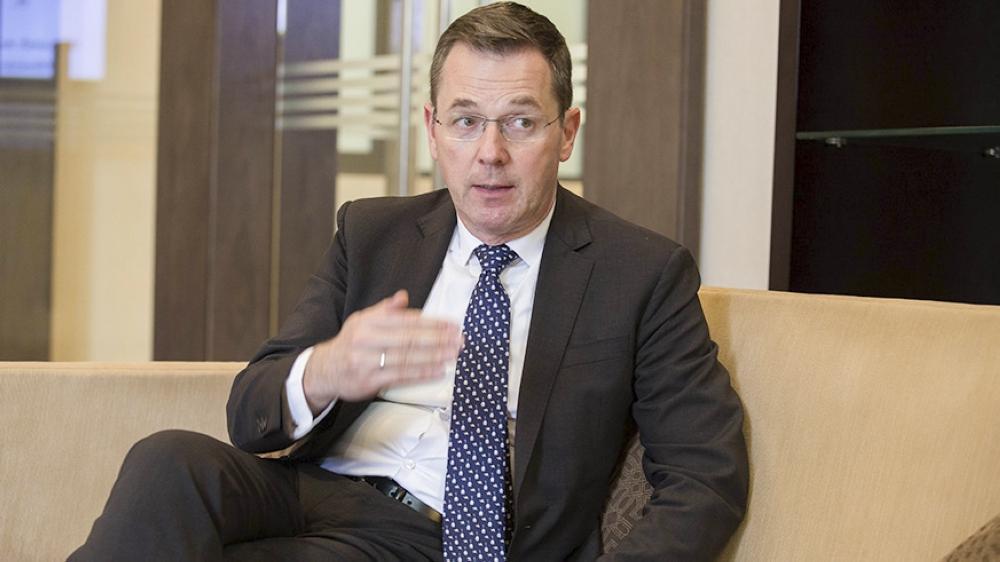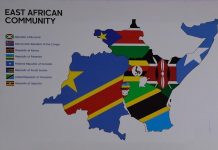Africa-Press – Rwanda. The International Finance Corporation (IFC) has been a major player in Rwanda and more broadly in Africa. It has financed some of the major private sector projects on the continent ranging from energy, health, capital markets, agriculture, infrastructure and education.
In the fiscal year 2022 alone, IFC’s long-term investments in Africa totalled about $5.2 billion, bringing their total investments over the last six decades in Africa to $60 billion.
The New Times’ Business Editor Julius Bizimungu spoke to Sérgio Pimenta, IFC’s Regional Vice President for Africa at the end of the Africa CEO Forum in Kigali.
Pimenta told this publication that IFC signed bilateral deals during the forum which have taken the organisation’s total volume of investment commitments to over $11 billion.
The interview has been edited for clarity and brevity. Below are excerpts;
1. IFC has been a big player in igniting the growth of the private sector in Africa. Talk to us about what came out of the bilateral discussions that you held during the past two days?
IFC has been growing its activities in Africa. We’ve been increasing our footprint, increasing our delivery of projects, increasing the volume of investments that we have been deploying on the continent, but also increasing the number of countries where we operate.
We are coming to the close of our fiscal year and we will be financing projects in 41 countries.
During this forum, we signed a number of transactions that takes our volume of commitment above the $11 billion-mark for this fiscal year, which is a record high number.
It’s very important that we did all this. We had a number of bilateral agreements with companies, with authorities that were here. We also signed a few interesting transactions, very diverse, which I think show well what we are doing.
We did a lot of transactions to help biofuel in Kenya with Eni, the Italian company. But we also did a small transaction in Mali within a company that is really having an impact on the ground in a country that is going through a difficult time.
We also signed a number of advisory components, advisory programmes, both with governments helping them with private sector development, like we did sign one here with the authorities in Rwanda.
We also signed with a number of private sector companies to help them improve their standards, improve the way they’re working. So, it was a very successful two days for us.
2. African economies have experienced macroeconomic challenges over the last couple of years – the pandemic, supply chain disruptions, and high inflationary pressures. What do you think is going to be the medium-term growth trajectory for Africa?
As we know, Africa went through some very difficult years with a number of crises, the ones you mentioned, COVID, the certain conflicts outside of the region that are impacting the region. What is important to underline is that these factors have disproportionately impacted Africa compared with other regions.
This is something that I hope is behind us. I kind of feel that we are at this tipping point where now we are resuming with the macro indicators that are more optimistic, that are more positive.
Although debt has gone up significantly, we see a sort of a slowdown in the public debt levels in the continent and maybe even going down in the near future. We’re seeing inflation also going down.
More importantly, we see growth in a very large number of countries in Africa. When you look at the number of countries that have high growth globally, Africa is very well represented in that group. Actually, some of the highest growing countries in the world are in Africa.
This is a very good momentum. What I found very interesting at this CEO Forum is that actually the decision makers in the private sector but also in the public sector all acknowledge this, all see this opportunity, and now are coming up with solutions so that we can move ahead and do more in Africa.
3. Some of the shocks that we’re talking about are actually external shocks. People like Aliko Dangote say Africa is actually positioned to deal with these challenges. What do you think Africa can do to future-proof some of these external shocks?
We are in a world that is becoming increasingly uncertain. It is extremely important to build resilience. There’s a very strong awareness, both at the public sector and the private sector in Africa, that Africa needs to build its resilience and this resilience will come from Africa.
It’s really like focusing on the continent, the opportunities and the solutions the continent can offer. Let’s talk about health, for instance, right? When the pandemic hit, everybody realised that Africa is extremely fragile in terms of health systems, depending a lot on external support, external products and so on.
Since then, including with the support of IFC, we have been seeing that the continent is building its resilience in terms of increasing its capacity in terms of pharmaceutical manufacturing, increasing the quality of its hospitals, increasing the insurance mechanisms to give universal health coverage.
This is how you build your resilience. Africa has many, many opportunities that can be seized. Countries can do trade among themselves, can invest in each other, can build regional value chains.
This is, for me, what will build the resilience of the continent and will make it stronger going forward.
4. If you were to mention maybe one, two or three things that you think would drive Africa’s economic growth in five or ten years from now, what would those things be?
Well, the first one, very obviously, is the impact of new technologies, artificial intelligence, and digitalization. This is transforming the continent. It’s happening, and we need to accelerate it.
We need to continue investing, particularly on digital infrastructure. This is, for me, one of the big trends that I see for the future of Africa.
The second one that I would mention is really about regional integration in the sense of more economic links, economic activities between African countries so that there is more realisation that the African market is a big market and that it should be first served by the African countries and African companies.
We can also talk about the third trend, which is the fact that there’s a lot of opportunities linked to climate challenges. Africa has a role to play in the climate agenda as the continent where very strong production of minerals that are needed for mitigation and adaptation is happening.
And if we can, and we are doing this, creating more value in the continent, starting to transform these minerals on the continent, then this is a trend that I think can be accelerated and will have a very strong impact on the continent.
5. There is a big puzzle of financing the private sector. How do you solve that?
What we’ve been doing on our side, we’ve been increasing the volume of our commitments, bringing more funding to Africa. We have been mobilising more funding so that there’s more funding available.
But I think we have to be a little bit more granular on what is needed. One of the particular points that I would focus a lot on is on the mobilisation of domestic resources and the domestic savings so that these can invest and help finance the development of Africa.
For that, we need to develop more capital markets. We need to make them deeper. We need to make them more active. This is part of the agenda that we’ve been discussing with some of the actors here and that we want to support.
So, there is funding available, but we need to make sure that it is channelled. I was talking about the digital economy. Let’s also use the new technologies with mobile funding, mobile banking to help companies, including the small ones, to get access to financing.
6. Lastly, how do you see the African Continental Free Trade Area (AfCFTA) being transformative and helping African economies really take off?
The Continental Free Trade Agreement or area is really the base, I would say, to set up the stage for this increased resilience and increased reliance of Africa on Africa.
When you look at any region that has gone through a similar process, it is not something that gets done in two or three days or even two or three years. It takes time, but it’s a direction. I think it’s exciting to see that we have to accelerate it.
What is interesting at the CEO Forum is that you see that the private sector companies are really, really subscribing to that vision. African companies are more and more turning to African markets, you are seeing the emergence of African champions.
This is the direction that we need to go.
For More News And Analysis About Rwanda Follow Africa-Press






